16 Proven Tips For Handling A Strong-Willed Rottweiler With Confidence
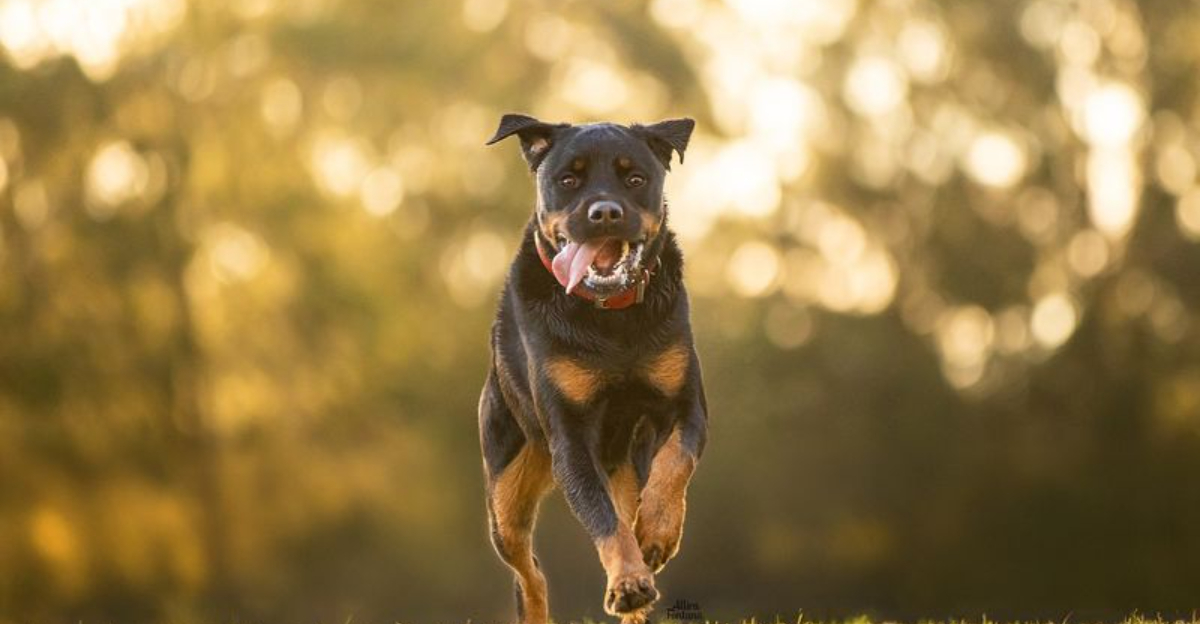
Managing a stubborn Rottweiler requires patience, consistency, and a clear approach. These dogs are intelligent, strong-willed, and protective, which can make training a challenge at times.
However, with the right strategies, you can foster a well-behaved and responsive companion. Below are some introductory tips to help you manage your Rottweiler’s stubbornness effectively.
1. Supervised Independence
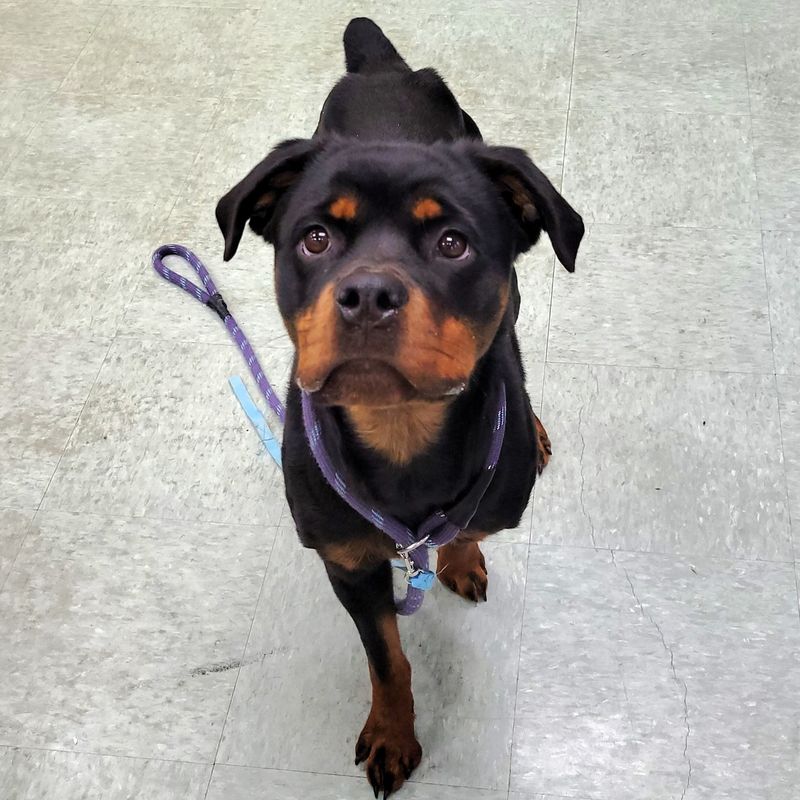
Encourage independence but always supervise in new or high-stress situations.
Rottweilers can be confident to a fault, so guiding them through unfamiliar territory helps prevent territorial or reactive behavior. Controlled freedom builds confidence without compromising safety.
2. Consistent Training

Rottweilers thrive when rules are clear and consistent.
Use the same commands and expectations every day to build trust and understanding. Inconsistency can confuse them and lead to pushback. With structure, they’re more likely to respect your authority.
3. Positive Reinforcement

Rewarding good behavior with treats, toys, or praise is far more effective than punishment.
Rottweilers respond best when they know what they’re doing right. This helps create a strong bond and motivates them to cooperate. Focus on encouraging the behaviors you want to see more of.
4. Establish Clear Leadership

Rottweilers are natural protectors and need to see you as their confident, trustworthy leader. Leadership doesn’t mean dominance—it means calm, consistent guidance.
When they know you’re in charge, they feel safe and less inclined to take control themselves.
5. Socialization

Early and ongoing socialization is key for this breed.
Introduce your Rottweiler to different people, pets, places, and situations in a positive way. It helps reduce fear-based reactions and encourages a well-balanced temperament.
6. Exercise And Mental Stimulation
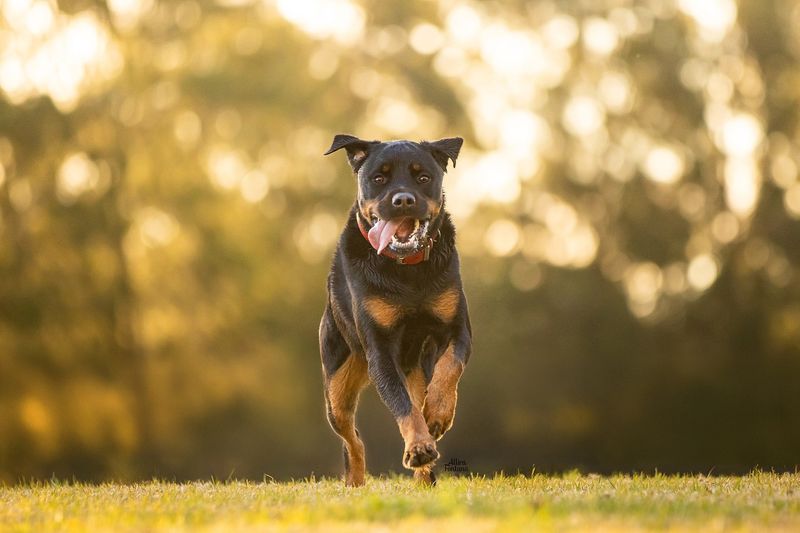
A bored Rottweiler is often a destructive one.
Daily physical activity and mental challenges like puzzle toys or obedience games help burn energy and keep their sharp minds engaged. A tired dog is a more manageable dog.
7. Obedience Classes

Professional classes provide valuable structure and help reinforce your training techniques.
They also offer safe socialization and give you the tools to better handle difficult behaviors. For strong-willed Rottweilers, early obedience training is often essential.
8. Use Firm, Calm Commands

Rottweilers don’t respond well to yelling or frantic energy. Speak in a steady, confident tone when giving commands. This shows control and earns their respect, helping reduce defiance.
9. Avoid Negative Reinforcement

Punishment or harsh corrections can make a Rottweiler anxious or even aggressive. Instead, redirect unwanted behavior and reward calmness and cooperation.
Building trust is much more effective than instilling fear.
10. Patience

Rottweilers are intelligent but may test limits. Stay patient as they learn and grow, especially when correcting stubborn habits. Progress takes time, but consistency will pay off.
11. Routine And Structure

These dogs love predictability. Set routines for feeding, walking, and training to help them feel secure and settled. A structured day reduces behavioral problems and increases responsiveness.
12. Interactive Play

Games like tug-of-war, fetch, or agility drills aren’t just fun—they also teach focus and impulse control.
Interactive play is a great way to bond while reinforcing positive behavior. Just be sure to establish rules during play to maintain control.
13. Clear Boundaries

Rottweilers need to know what’s allowed and what’s not from day one. If you let them on the couch one day and scold them the next, confusion and resistance can build.
Be firm and consistent with your household rules.
14. Avoid Overtraining
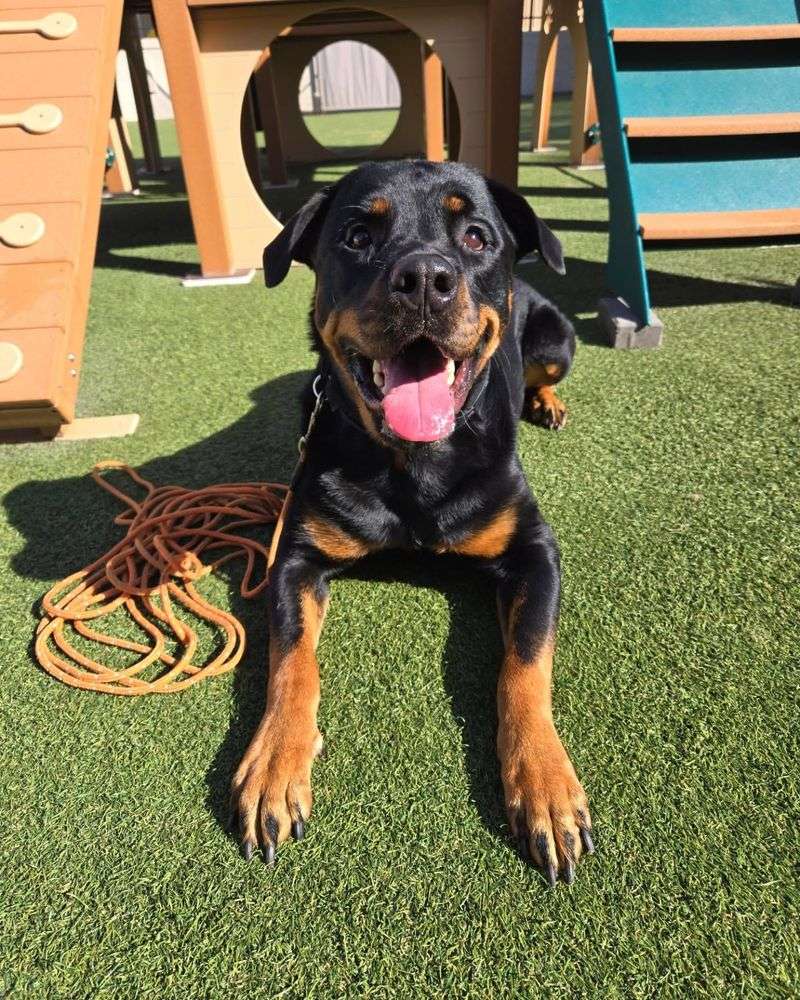
Too much repetition can frustrate a strong-willed dog.
Keep sessions short, positive, and varied. This keeps them interested and prevents burnout or stubborn refusals.
15. Use High-Value Rewards

Not all treats are created equal. Use special rewards—like bits of chicken or favorite toys—for particularly challenging commands or breakthroughs.
These high-value motivators can work wonders with a stubborn pup.
16. Leash Training
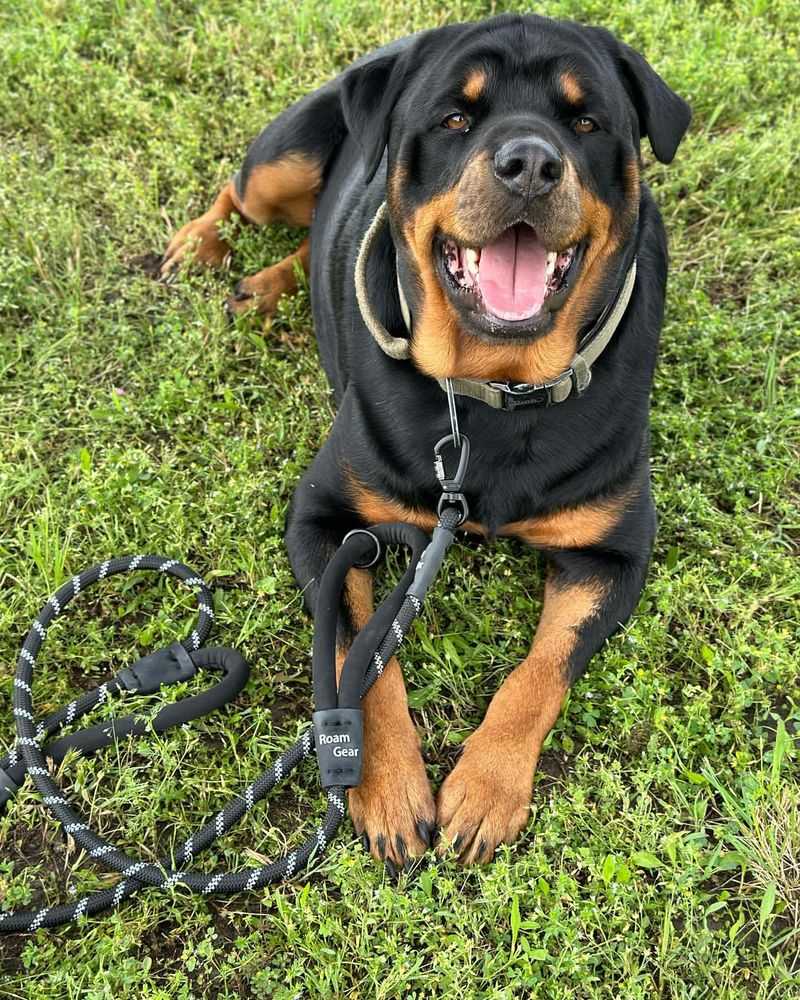
Proper leash manners are crucial for a powerful breed like the Rottweiler.
Start early, use positive reinforcement, and never let them drag or pull. A well-behaved walker is easier to manage in any environment.






